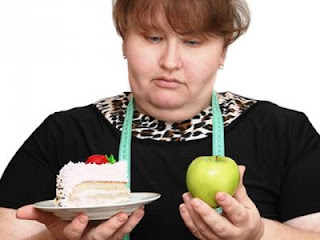Nutrition Guidelines:
Who eats according to the guidelines of the
Food Centre and also a regular diet, will quickly feel fitter. Here are the rules for a healthy diet.
- Bring variety to your meals.
- Do not eat too much.
- Eat plenty of fruit, vegetables and whole meal bread.
- Watch out with saturated fats.
- Go hygienic and safe to eat.
Variation:
You can choose varied food every day to eat from each of the five boxes below:
- Block one- vegetable and fruit.
- Block two- whole meal bread and potatoes, cereal, (brown) rice, macaroni, spaghetti or legumes.
- Box three- Milk, cheese and meat, chicken, fish, eggs, and meat substitutes like tofu.
- Block four- Margarine or olive oil.
- Block five- drinks, especially water.
Foods:
Below are the recommended amounts of food per day, which have been prepared by the Nutrition Centre. These quantities provide sufficient nutrients for an average lifestyle:
- 5-7 slices of bread
- 3-5 150-250 grams potatoes or pasta or rice
- 4 tablespoons vegetable (200 grams)
- 2 pieces of fruit
- 2 glasses of milk (products)
- 1 or 2 slices of cheese
- 100 grams of meat, fish, chicken, tofu
- 1 or 2 slices of cold meat
- 5 grams of margarine / margarine per sandwich
- 15 grams of margarine for the preparation of the hot meal
- 2 liters of fluid
Fruit and vegetables:
Fruit and vegetables are important sources of vitamins and minerals and fiber. They also help the risk of heart disease and some forms of cancer. So eat every day at least 200 grams of vegetables and 2 pieces of fruit.
Bread and potatoes:
Bread, potatoes, rice, pasta and legumes are rich in starch and fiber. They contain little fat. Make sure that you have these products widely used because they provide a good basis for a healthy diet and have absolutely no fattened.
Fats:
We need fat as a source of unsaturated fatty acids. We need to be careful with saturated fat. Fat is one infamous fattening. To reduce the risk of heart disease, it is wise to choose products that are rich in unsaturated fat.
Few tips to use to limit saturated fat:
- Opt for skimmed milk and skimmed milk.
- Use (diet) margarine thinly on bread.
- Eat more fish instead of meat, fish usually contains little fat and mostly unsaturated fat.
- Limitation on fat snacks such as cheese, sausage, biscuits and cakes.
- Choose cooking products with minimal saturated fats.
Economical with salt:
Much salt is bad for your kidneys and increases the risk of high blood pressure. Spices are a good alternative to the meal flavor. Choose iodized salt. It also moderate with pretzels and savory snacks. Grab prefer a piece of carrot or cucumber.











